第78章
The Bavarian cavalry, to avoid the disgrace of such a capitulation, galloped in wild disorder toward the gate and the Hofgarten. But there Speckbacher had taken position with the peasants, who, mostly armed only with pitchforks, had hurried to the scene of the combat from the immediate environs of Innspruck. But these pitchforks seemed to the panic-stricken cavalry to be terrible, murderous weapons; cannon would have appeared to them less dreadful than the glittering pitchforks, with which the shouting peasants rushed upon them, and which startled not only the soldiers but their horses also. The soldiers thought the wounds made by pitchforks more horrible and ignominious than utter defeat, and even death.
Thunderstruck at their desperate position, hardly knowing what befell them, unable to offer further resistance, they allowed themselves to be torn from their horses by the peasants, to whom they handed their arms in silence. The Tyrolese then mounted the horses, and in a triumphant procession, headed by Joseph Speckbacher, they conducted their prisoners back to Innspruck.
[Footnote: Hormayr's "History of Andreas Hofer," vol. i., p. 250.]
There the enemy had likewise surrendered in the mean time, and the barracks which, until yesterday, had been the quarters of the oppressors of the Tyrolese, the Bavarian soldiers, became now the prisons of the defeated. Escorted by the peasants, the disarmed and defenceless Bavarians were hurried into the barracks, whose doors closed noisily behind them.
Innspruck was now free; not an armed Bavarian soldier remained in the city, but the Tyrolese, to the number of upward of fifteen thousand, poured into the streets, and the citizens joined them exultingly, and thanked the courageous peasants for delivering them from the foreign yoke. The city, which for three hours had been a wild scene of terror, havoc, bloodshed, and death, resounded now at the hour of mid-day with cheers and exultation; nothing was heard but hurrahs, songs, and cheers for the Emperor Francis and the beloved Tyrol.
Every minute added to the universal joy. The victorious Tyrolese, mounted on the horses of Cite Bavarian cavalry, and headed by the proud and triumphant Speckbacher and a rural band of music, appeared with their prisoners. Two badly-tuned violins, two shrill fifes, two iron pot-lids, and several jews'-harps, were the instruments of this band. But the musicians tried to make as much noise with them as possible, and the citizens considered their music sweeter and finer than the splendid tunes which the bands of the Bavarian regiments had played to them up to this time.